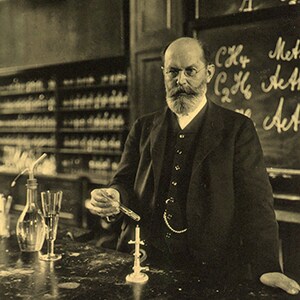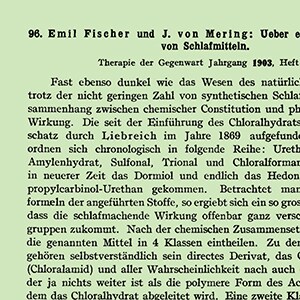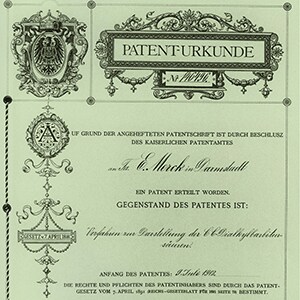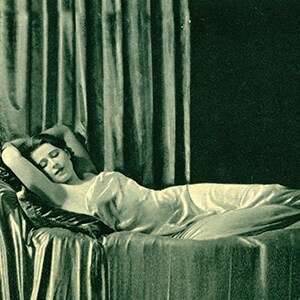
»Thank God I’ve got the powders […] That’s the only way out. […] But Veronal... you go to sleep slowly […] you drink it in a draught, dream, and it’s all over.«
Arthur Schnitzler, Fräulein Else. A novella, 1924
Else is a young woman in despair. A letter reaches her at a fashionable hotel stating that her father is facing bankruptcy and imprisonment. Her mother begs her to ask Herr von Dorsday, an elderly man-about-town, for money. Else knows what that means: she is to sell her body. Is there any way she can escape this humiliation? She prepares six sachets of Veronal powder. She enters the lounge. A hysterical scene ensues and she faints in front of her horrified fellow guests. She is brought to her room. She takes the Veronal and descends into dreams whose tangled associations the reader tries to follow. Does the end of the narrative mark her death? It is left open. What the reader knows fades even as Elseloses consciousness.
Many hypnotic agents are in use at the turn of the 20th century, all of which are poorly tolerated. Pharmacology has discovered drug design, however. Pharmacologists compare molecular structures and draft a blueprint for the ideal sleeping aid. Josef von Mering, a physician, is curious about malonylurea or »barbituric acid«, but the compound seems to have no effect. Von Mering enlists the aid of Emil Fischer, the »bright star in chemistry’s firmament«. The molecular is successfully modified into an active compound.
Who can manufacture it? E. Merck, Darmstadt, Germany, is contacted, a method is patented and »Veronal« is launched in 1903. There is a drawback, however: the patent proves to be incomplete, and others are soon busy reworking the compound. Von Mering: »I have heard rumors that the Elberfelders are engaging with it.« A contract with Bayer settles the matter. Doctors and patients alike rave about Veronal, but the drug soon comes undermounting criticism. The Darmstadt company summarizes the vague state of the debate with a reference to »cumulative effects«. The medicine acquires prescription status and the maximum dose is set at 1.5 grams. Suicides are reported – in »young ladies [with] depression and baseless indispositions«. Six doses of powder are enough to cause death in persons of »slight build« if left untreated. Did Else take nine grams? If nobody was there to help – »it will be at least 6 hours before the doctor comes« – she probably died.
A Stefan Zweig novel, »Ungeduld des Herzens« (Impatience of the Heart) and the film »Die Sünderin« (The Sinner), narrate the metamorphosis of a medicine. Outside the world of fiction, »death by Veronal« is sought in real life and very much en vogue in Bohemian society of the 1920s. And Veronal is stockpiled for use when the time would come to escape a fate »too dreadful to imagine« – deportation and murder. Veronal is taken off the market in 1956. Science-based risk-benefit analysis tips the scales in the right direction. Veronal is history.
In a publication, the scientists and friends Emil Fischer (left) and Josef von Mering report, »We thought it would be interesting to test compounds with a carbonatom attached to several ethyl groups, and in fact we did succeed in finding a major new class of hypnotics.«
The medicine is said to have been named in honor of the sleeping potion of the two lovers of Verona, Romeo and Juliet. It hasal so been claimed that the inventors took Veronal on a trip to Italy – and woke up in Verona. Or might Fischer have been thinking of the Latin word »verus«, in the belief that he has found the »one true« sleep-inducing agent?
Malonyl urea is synthesized as early as 1864 by Adolf von Baeyer, who sits »on the throne of chemistry« as professor of chemistry in Munich. Von Baeyer is said to have named the substance »barbituric acid« out of love for a girl called Barbara. Or is he inspired by the alchemist Barbara von Cilly? Even the starting material is shrouded in romance and myth.









